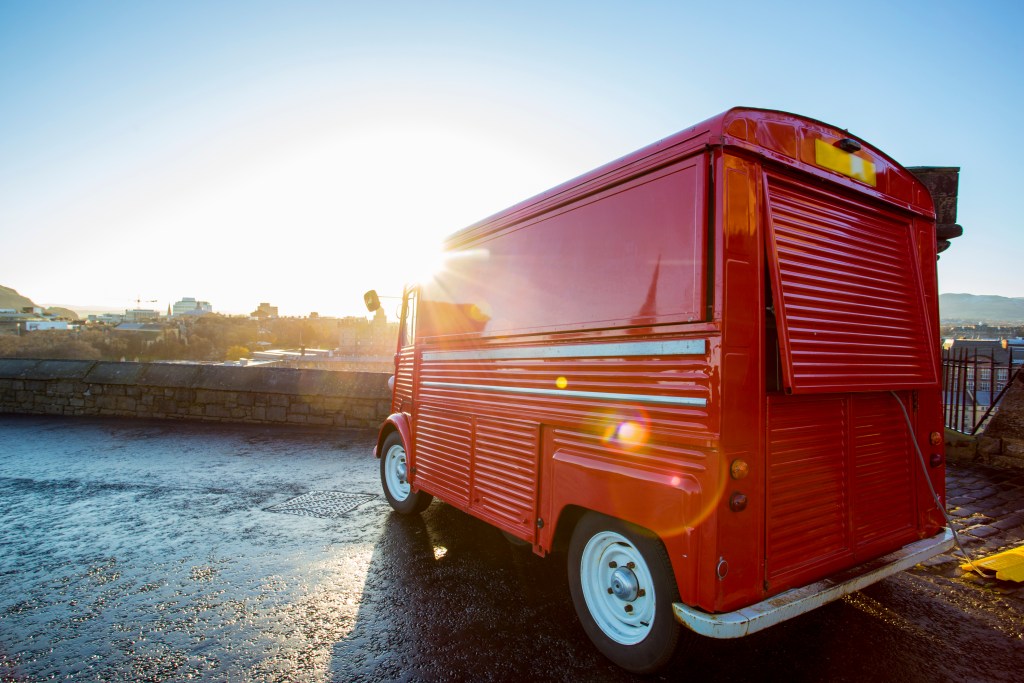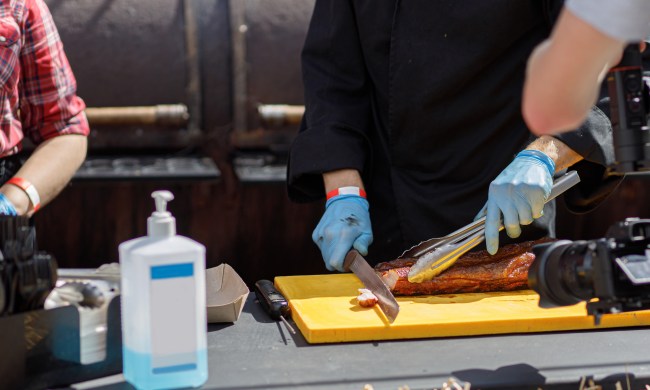Starting a food truck business to sell hot dogs is a great idea if you know how to run a business. Popular all over, hot dogs are a favorite among a huge population of people. You can also tailor them to suit many diets. Think of all the things you can do with hot dogs:
- Vegan and vegetarian twists with tofu, beans, jackfruit, and more
- Healthier options with chicken and turkey
- Jazzed up favorites like Coney dogs and chili dogs
These are just a few ideas, but you can get even more creative. If you’re thinking of starting a hot dog food truck, you need to set up a clear business plan. It would be best to have a name, an ideal place to set up, permitting, licensing, and financing. With so many factors to plan around, you must do so well in advance. Read on to learn everything you need to know about running your own hot dog stand.

Planning it all out
There are many steps to starting any business. When beginning a food truck empire, you need clarity in your product, menu, budget, area of operations, expenses, and projected revenue. Let’s explore what these details may look like for food truck operations.
Writing a business plan
Business plans are pretty straightforward. Some are more difficult, but most outline how your business will run over a set period of time. Your plan will include funding sources, costs, risks, opportunities, and other operational details. If you’ve never written a business plan before, check out this guide for writing your own hot dog food truck business plan.
Choosing a name
After you’ve written a business plan, it’s time to name your hot dog truck. There are so many hot dog trucks around, but it’s essential to pick one that stands out. Some names may already be licensed, so do your research and pick a name with strong branding potential that matches your hot dog style, location, and business goals.
Picking a location
Maybe you already know where you’ll operate. If you do, that’s great; you’re already a step ahead. Make sure you’ve got a solid name and plan to secure your goals.
Securing financing
Planning out expenses for a hot dog food truck depends on your menu, operational budget, startup funds, potential growth, and more. Maybe you’re renting or leasing a food truck, or you wish to purchase one outright. Drafting a solid business plan (or two) can help you determine how much funding you’ll need upfront, making it that much easier to secure financing.

Getting the paperwork in order
After you plan out how you’ll operate your hot dog truck, you need to get all the necessary legal documentation in order. These documents include necessities for permitting, licensing, insurance, and more.
Permits and licenses
Every state requires some form of health and safety or agricultural permit to sell and handle food. Your best bet is to research local health code requirements. Licensing varies from permitting, including food handlers permits to licenses that allow you to operate in multiple places. Permits are most often for operation locations and staying compliant with local ordinances.
EIN and resale numbers
Whether you’re a solo business owner or you staff a couple of employees, you’ll need an EIN and resale numbers. These are vital to payroll, taxation, and write-offs. Your hot dog food truck should have separate costs and expenses than your personal salary.
Insurance
Whatever capital you put into your food truck business, you should protect it. The best way to secure your investments is with insurance. Whether you rent or own a food truck, make sure you check out insurance options right away.
Commissary
You’ll also need to factor in where your food truck will gas up, charge anything electronic, refill water and propane, and more. If you need to dump greywater, a commissary helps with that, too. You’ll likely have to pay a nominal rent for a commissary, so do your research and find one in your service area (that you can afford).
Best hot dog food trucks in the U.S.
If you need tips for operating a hot dog food truck, here’s a list with a few examples of some of the most popular hot dog trucks in the U.S. Consider the following as sources of inspiration.
Angelo’s Coney Island
Located in Flint, Michigan, these Coney-style hot dogs are very different. This is a unique kind of chili, too. Its all-meat, dry base comes from ground hot dogs. With its original sauce, Angelo’s is an unforgettable food truck.
Biker Jim’s Gourmet Dogs
Biker Jim’s is in Denver, Colorado. The gourmet hot dogs come from every kind of meat imaginable: snake, pheasant, elk, boar, bison, and reindeer. If you want the best meat you’ll ever have in hot dog form, you need to visit Biker Jim’s.
Dat Dog
New Orleans is known for its beignets, but Dat Dog is known for its specialty hot dogs. You can find bayou-inspired gator sausage or load a hot dog with traditional Cajun and Creole toppings. If you want a hot dog with crawfish on it, you can get it with Dat Dog.


